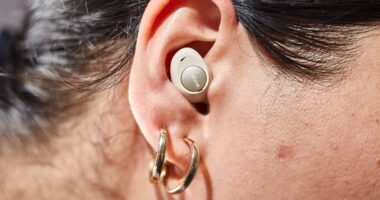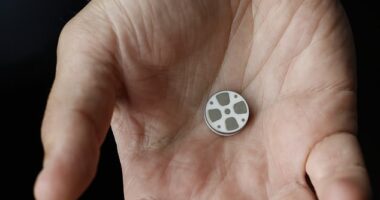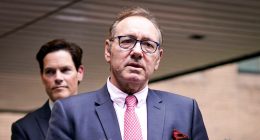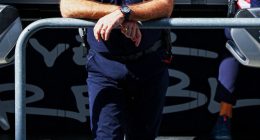
Two U.S. senators are urging the Federal Trade Commission to open a probe into whether Tesla Inc. used deceptive marketing practices involving driver-assistance features that the electric-vehicle maker calls Autopilot and Full Self-Driving.
In a letter to the head of the FTC, Lina Khan, dated Wednesday, Sens. Richard Blumenthal of Connecticut and Ed Markey of Massachusetts said they have serious concerns about how Tesla advertises its advanced driver-assistance features, which don’t enable vehicles to operate autonomously. They also took aim at Chief Executive Elon Musk for some of his comments.
“Tesla and Mr. Musk’s repeated overstatements of their vehicle’s capabilities—despite clear and frequent warnings—demonstrate a deeply concerning disregard for the safety of those on the road and require real accountability,” the senators wrote. “Their claims put Tesla drivers—and all of the travelling public—at risk of serious injury or death.”
Tesla didn’t immediately respond to a request for comment that was solicited after normal business hours. The company previously has said that driving with Autopilot engaged is safer than doing so without it. In its owner’s manuals, the company spells out the level of automation its driver-assistance features provide and reminds drivers to remain engaged.
The FTC, which has a consumer protection mandate and can sue companies for allegedly false advertising, didn’t immediately respond to a request for comment.
The senators’ letter is the latest sign that federal officials are paying closer attention to advanced driver-assistance technology, an area of growth in the automotive industry that hasn’t been tightly regulated. Both senators have previously voiced their concern about Tesla and its driver-assistance features.
On Monday, the National Highway Traffic Safety Administration revealed that it was investigating Autopilot after a series of crashes at emergency scenes. NHTSA identified 11 crashes since January 2018 involving Tesla drivers that had been using the company’s advanced driver-assistance system before hitting one or more vehicles that were involved in an emergency-response situation. One person died in those crashes and 17 were injured, NHTSA said. Tesla didn’t respond to a request for comment on the NHTSA probe.
The auto safety agency’s probe covers an estimated 765,000 vehicles. That amounts to most of the vehicles Tesla has sold in the U.S. since the beginning of 2014, according to estimates by Wards Intelligence. Tesla doesn’t break out vehicle sales by region.
Tesla’s shares fell roughly 7% in the two days of trading after the NHTSA disclosed its investigation.
Autopilot, which Tesla says is available on cars made in late 2014 and after, is designed to help drivers steer and maintain a safe distance from other vehicles on the road. Tesla sells an upgraded suite of features for $10,000 that it calls Full Self-Driving. That software helps with additional tasks, including changing lanes and parking.
Both sets of features are designed for an attentive driver, Tesla has said, instructing drivers to keep their hands on the wheel and be prepared to take control. However, safety advocates for years have been raising concerns that the language the company uses to describe its systems risks giving drivers an inflated sense of the vehicles’ capabilities.
Some drivers have created a genre of social-media videos dedicated to testing the limits of their vehicles. In some, people appear to operate their Teslas hands-free; others appear to show Teslas cruising down the highway without anyone in the driver’s seat.
“As Tesla makes widely available its FSD and Autopilot technology and doubles down on its inflated promises, we are alarmed by the prospect of more drivers relying more frequently on systems that do not nearly deliver the expected level of safety,” Sens. Blumenthal and Markey wrote in their letter to the FTC.
The senators cited a video titled “Full Self-Driving” that the company posted to YouTube in 2019, showing a Tesla operating for more than a minute without the driver’s hands on the wheel. The video has been viewed more than 18 million times. Tesla hasn’t responded to a request for comment on the video.
Earlier this year, the lawmakers called on NHTSA to develop recommendations for improving advanced driver-assistance systems such as Tesla’s Autopilot.
The probe made public Monday isn’t NHTSA’s first review of Autopilot. The agency closed an earlier investigation in 2017, saying that it hadn’t identified any defects in the system’s design or performance.
NHTSA said in late 2018 that it was referring a separate Tesla concern to the FTC, according to documents obtained by the legal transparency website PlainSite. The auto safety regulator said in a letter to Mr. Musk that some of Tesla’s claims about the safety of its Model 3 sedan were misleading. Tesla disputed those assertions.
The FTC didn’t respond to a request for comment about whether it had any open investigations into Tesla.
Write to Rebecca Elliott at [email protected]
Copyright ©2021 Dow Jones & Company, Inc. All Rights Reserved. 87990cbe856818d5eddac44c7b1cdeb8








